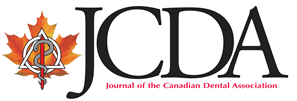Oral and Pharyngeal Cancer: Knowledge and Opinions of Dentists in British Columbia and Nova Scotia
FULL TEXT
• Joanne B. Clovis, PhD •
• Alice M. Horowitz, PhD •
• Dale H. Poel, PhD •
A b s t r a c t
Oral and pharyngeal cancers are largely preventable and can be successfully treated when diagnosed at an early stage. Dentists in British Columbia and Nova Scotia were surveyed regarding their knowledge and opinions about oral and pharyngeal cancer. In February 1998 a pretested 41-item survey was mailed to a random sample of dentists in British Columbia and the population of dentists in Nova Scotia. A reminder postcard and one additional mailing were sent to nonrespondents. Of the 670 dentists supplying usable responses (response rate 55.2%) only 56.7% agreed that their knowledge of the subject was current. Most dentists correctly identified tobacco use (99.4%) and alcohol use (90.4%) as risk factors, but fewer correctly identified factors such as the use of spicy foods (57.0%) and poor oral hygiene (46.3%) as not being risk factors. Only 42.5% identified both erythroplakia and leukoplakia, in that order, as the conditions most likely associated with oral cancer. Indices of risk and diagnostic knowledge were constructed by summing the number of correct responses to items in each domain. On 16 risk factors the mean correct score was 9.2, and on 14 diagnostic procedures the mean correct score was 10.0. Only 38.5% of dentists had consistent levels of knowledge on both indices. Differences between the provinces were statistically significant (p < 0.01) for only 2 knowledge items. About three-quarters of all dentists (77.0%) were interested in taking continuing education courses. Dentists in British Columbia and Nova Scotia could benefit from undergraduate and continuing education courses to increase their knowledge of risk and diagnostic factors for oral cancer.
MeSH Key Words: Canada; dentist's practice patterns; mouth neoplasms
Reply to this article | View replies [0]
|

